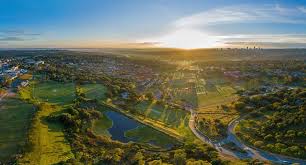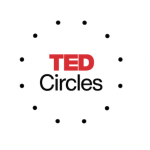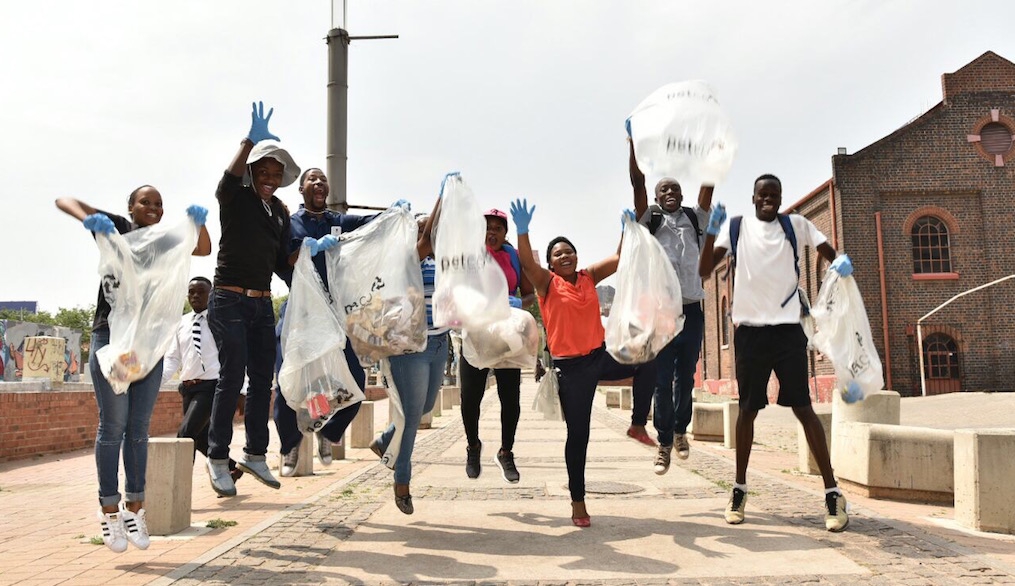
Stronger Together
I am extremely grateful to be able to serve the St Stithians community as the chairman of Council. Education is such a gift – and one I believe we must ensure all can receive.
The work that Saints has done and continues to do for thousands of children, makes the world a better place. Helping young people be the best version of themselves is a joy and gift.
One of the privileges of my role is working with our Rector, Celeste Gilardi. Read her Founders Day 2020 address and see why I am inspired and excited by her leadership and our (educational) future.
FOUNDERS DAY 1 AUGUST 2020: RECTOR’S ADDRESS
Good morning One and All, it is a great privilege and honour to address you on this our Founders’ Day 1st August 2020.
As many of you know, my husband Franco is Italian South African and I am Portuguese South African, so forgive me if my address to you today is scattered here and there with references to European theologians and a little Latin. I hope though that you will find I have included some other parts of the globe and most importantly, not forgotten our own beautiful country and its Mother Continent.
On an occasion such as Founders Day, it is tempting to return to the past and to dwell there, celebrating the men and women whose educational dream gave us all that we now have. But fitting and right as that might be, the times in which we live are asking – are demanding – that we do things differently. I want to start today by shifting our gaze immediately on to the ones who are the centre of everything we do here: our children and young adults.
Renowned African-American writer of children’s literature, Jason Reynolds, says that ‘sometimes we reduce children and young people to half-formed things’. Instead, he challenges those of us involved in education to ‘acknowledge the complexity and the beauty and the sophistication of childhood’.
If this is to be our starting point, what, then, is our work? What is our primary calling?
Reynolds suggests it is to lead children to freedom by creating ‘fortitude in their minds and bodies and spirits’ [and to] ‘activate their imaginations’. If we do not succeed in this, says Reynolds, if, by the time they are out of high school ‘their imaginations are shot, we’re in trouble’.
I agree.
If ever we needed young people with fortitude and imagination it is now. The responsibility we bear to create schools that empower all our students to be fearless and free, to be imaginative, divergent thinkers – agents of action and change – is indeed great.
It is a responsibility I intend to fulfil with humility and courage.
Being the first female Rector of St Stithians is a privilege that I know is going to stretch my commitment to servant leadership. But as a woman of faith, strengthened by a lifetime of Christian teaching, I believe it is no fateful accident that, accompanying me, is Bishop Purity Malinga, from whom I have already drawn much inspiration and wisdom. I know that, in being a Methodist School, collective strength is available to me, to us. For this, I am grateful.
Yet, even needing to qualify and emphasise ‘Rector’ with ‘female’ leads me back to our young people. They are encountering the world in ways completely different from how our Founders and many of us did at their age. According to some contemporary Italian theologians, we are in a time of ‘anthropological change’ in which all people ‘are interpreting themselves differently from how they did in the past, with different categories from those most familiar to them’. The education we provide must respond to the insistence of the youth, to their prophetic and imaginative calling out to us to listen to them, to understand them.
I think our young people have been calling out to us for a while, and perhaps, only as their voices have grown louder, more strident, calling us out on all the -isms of our times – have we begun to listen. They have insisted we own that the educational work before us is inextricably linked to their challenge of how to live as humans in an uncertain future that seems, already, to have arrived. And that we guide them in being human in a world that is facing severe existential threats.
In meeting this challenge head on, what then are the tools we should use? I turn again to the Christian tradition for guidance.
According to theological scholar Bergaglio , there are certain pillars that should support a Christian education. The first I have already mentioned – reckoning with young people’s different ways of understanding themselves. And, for us in South Africa, the second pillar is very much linked to the first. We understand it as the spirit of ubuntu, of my being because you are also. This means not ignoring, or ‘absorbing’ the other, but recognizing as valid who the other is, and honouring diversity, an intentional turn which enriches everyone and lays the foundation for a reimagined unity.
Diversity is an interesting word. Originally, in Latin, diverse stresses the idea of turning to something. Yet often we use it to suggest an opening out. And the word ‘inclusion’ means to shut in. Putting these two words together – as we do – helps us to make paradox fit purpose, helps us to see how to embrace all members of our community, to begin to build out from the ruins of a global pandemic and the inequities it exposes, a better world. What we need to do is open ourselves out to the repetition of difference and yet, ensure that we embrace it, bring it in, to the core of how we go forward as people together on this planet. We must find a way to coexist in a world that prioritises proper stewardship of resources as an expression of care for each other, not just as commodities to extract. We want to build a better country for our children. We want to build a better school.
So we must listen to the signals our youth are sending us about the impact our histories is having on their futures. And, we must do the opposite. We must do the work of uncovering how different origins of knowledge, different ways of knowing, can converge and prepare our students to face a future none of us can predict, but one that will make us prosper and live Stronger Together One and All.
And in our present quest rightly to fight the injustice of racism, we are not going to create futures in which inclusion for some becomes exclusion for others. Diversity and Inclusion must mean that whoever joins the Saints Family – Black, Coloured, Indian and White – feels in their bones that they have come home, arrived at a place where the hashtag Stronger Together is not just a screen meme, but is the very DNA of our school. And that our DNA unites more than divides. The time is up for dividing South Africans from the richness we can bring to each other. ‘The task of education’ – and I quote – ‘is not only aimed at empowering oneself but also at helping people to build a future together, a shared history.’
I am determined that, together, working as a Team of teams, St Stithians shall achieve this.
St Stithians shall continue to be a community which not only embraces diversity, but is intentionally vigilant against its loss, against the absorption into invisibility of the individual standing in front of us. If we lose sight of each person’s intrinsic worth, we all will be diminished.
A more challenging pillar of Christian education – but one that resonates strongly with our times – is leaning into the restlessness of young people. To resist trying to adapt and tame them. Rather, we need to be alert to the energising ‘wisdoms’ their ancestors have bequeathed them. Because it is such restlessness that compels them to go beyond themselves, to look for a life-purpose bigger than their visions. For, and I quote, ‘a restless child is a child sensitive to the stimuli of society, one who opens up to the crises that life offers, one who rebels against the limits [yet] claims and accepts them – if they are right … one who wants to learn to discuss’. Had Madiba, and all others who sacrificed their youthful years in the struggle not been deeply restless and responsive to the stimuli of their times, would we, I wonder, be standing together here today? Had they not wanted to discuss, what would have become of our country?
I want St Stithians to be a school where restless young people can learn to negotiate meaning between each other – and to flourish.
To discuss, one must ask questions. Sometimes, one must resist answering. Especially when, as poet David Whyte says, they are not one’s own Beautiful Questions. Or nobody is asking. As educators, we owe it to our students to listen and accompany them as they discover their questions and their answers. For questioning arises in the curious imaginations of individual minds. Imagination leads to creativity, to hope in action.
I want St Stithians to remain a refuge of active hope in a world often characterised by passive despair.
Such a school must be built on another pillar: respect for structures allowing processes to unfold over time. A long time. Fifteen to thirteen years, maybe more. In the day-to-day work of teaching, we help our young people to hold on to what they bring with them while we nudge them to scan their horizons. Freedom like this is characteristic of Saints. Even in our landscape. For freedom sometimes comes within a big safety net of constraint. Our limits are there, but they are spacious and steady. Within these, our students must be able to trust us, to trust that we are noticing the threats outside the perimeter. And we must challenge them more than they challenge us as we guide them to our gates for the last time.
In many ways, St Stithians has been built on all these pillars, in intention at least. But what recent times have taught us is that intention is not the same as impact. And so as I stand before you today, I am asking the question of myself, and of us as a community, how can we make even more of an impact? On our school? On our country? On our world? The answers lie in throwing down a few more challenges.
I challenge myself and you to create a place where every child, every teenager – every person – feels they belong, a place where we know how not to offend each other, and, if we do, to discuss and resolve our differences and find peace. This is what a family based community is.
I challenge us to be a school where there is freedom to choose from a variety of educational models that authentically honours each student’s hopes, dreams and strengths. Educating in the COVID-19 pandemic has generated different ways of teaching and learning. We must build on these unexpected gains.
I challenge us to be a school where young people’s struggles to encounter themselves and craft their sense of self are honoured – and dignified by our caring response.
I challenge us to listen. To do the work of understanding. To reckon with what our students say. To nurture but not tame them. To be comfortable with their restlessness. To resist persuading them to appease society. Let us encourage them to re-create it.
I challenge us to reclaim what it means to be cutting edge. Just as blades are forged in foundries, let us, in this fluid and molten time, forge an educational culture that cuts, and from the branches of tradition, fashions a future of transformation.
Finally, at this time, I want to encourage our Matrics, from whom so much has been taken this year, to go on believing the world is full of opportunities waiting for you – not least because you will discover them. To you, Matrics of 2020, I say, in the words of the late John Lewis, ‘You are a light. You are [our] light. Never let anyone – any person or any force – dampen, dim or diminish your light … hold only love, only peace in your heart, knowing that the battle of good to overcome evil is already won’.
All that remains is for me to say thank you.
END OF SPEECH






